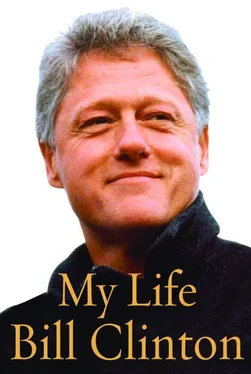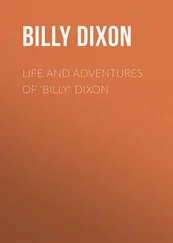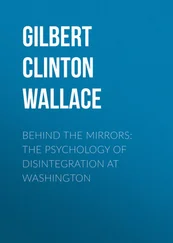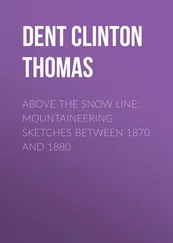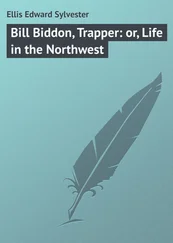Two days later, still not knowing who my successor would be, I saw Arafat in the Oval Office. The violence was subsiding and I thought he might be serious about peace. I told him that I had only ten weeks left to make an agreement. In a private moment I held his arm, stared straight at him, and told him I also had a chance to make an agreement with North Korea to end its long-range missile production, but I would have to go there to do it. The whole trip would take a week or longer by the time I made the obligatory stops in South Korea, Japan, and China.
If we were going to make peace in the Middle East, I knew I would have to close the deal. I told Arafat I had done everything I could to get the Palestinians a state on the West Bank and Gaza while protecting the security of Israel. After all my efforts, if Arafat wasn’t going to make peace, he owed it to me to tell me, so that I could go to North Korea to end another serious security threat. He pleaded with me to stay, saying that we had to finish the peace and that if we didn’t do it before I left office, it would be at least five years before we’d be this close to peace again.
That night, we had a dinner to celebrate the two hundredth anniversary of the White House. Lady Bird Johnson, President and Mrs. Ford, President and Mrs. Carter, and President and Mrs. Bush were all there to mark the birthday of the people’s house, which every President since John Adams had inhabited. It was a wonderful moment in American history, but a tense one for President and Mrs. Bush, who had to be on edge with their son’s election hanging fire. I was glad they had come. A few days later Chelsea and I went to Brunei for the annual APEC summit. Sultan Hassanal Bolkiah hosted our meeting in a beautiful new hotel and convention center. We made some headway on the reforms necessary to avoid another Asian financial crisis, and Singapore prime minister Goh Chok Tong and I agreed to start negotiations on a bilateral free-trade agreement. I also enjoyed a round of golf with Prime Minister Goh on a night golf course designed to help golfers manage the intense heat. I had instituted the APEC leaders’ meeting back in 1993, and I was pleased with the expansion of the group and the work done since then. At my last APEC meeting I thought the effort had borne fruit, not simply in specific agreements, but also in building an institution that tied the United States to Asia in the new century.
After Brunei, Chelsea and I went to Vietnam for a historic visit to Hanoi, Ho Chi Minh City (the old Saigon), and a site where Vietnamese were working with Americans to unearth the remains of our men still listed as missing in action. Hillary flew in to join us from Israel, where she had gone to attend the funeral of Leah Rabin.
I met with the Communist Party leader, the president, the prime minister, and the mayor of Ho Chi Minh City. The higher the position, the more likely the leader was to sound like an old-style Communist. The party leader, Le Kha Phieu, tried to use my opposition to the Vietnam War to condemn what the United States had done as an imperialist act. I was angry about it, especially since he said it in the presence of our ambassador, Pete Peterson, who had been a prisoner of war. I told the leader in no uncertain terms that while I had disagreed with our Vietnam policy, those who had pursued it were not imperialists or colonialists, but good people who believed they were fighting communism. I pointed at Pete and said he hadn’t spent six and a half years in the prison known as the Hanoi Hilton because he wanted to colonize Vietnam. We had turned a new page with normalized relations, the trade agreement, and two-way cooperation on MIA issues; now was not the time to reopen old wounds. The president, Tran Duc Luong, was only a little less dogmatic.
Prime Minister Phan Van Khai and I had established a good relationship at the APEC meetings; a year earlier he had told me he appreciated my opposition to the war. When I said that the Americans who disagreed with me and supported the war were good people who wanted freedom for the Vietnamese, he replied, “I know.” Khai was interested in the future and hoped the United States would give Vietnam assistance in caring for the victims of Agent Orange and developing its economy. The mayor of Ho Chi Minh City, Vo Viet Thanh, sounded like every good aggressive American mayor I knew. He bragged about balancing his budget, reducing his payroll, and working for more foreign investment. Besides the officials, I shook hands with a large crowd of friendly people who gathered spontaneously to greet us after an informal lunch at a local restaurant. They wanted to build a common future. The trip to the MIA site was an experience none of us would ever forget. I thought back over the years to my high school classmates who had died in Vietnam and to the man I’d helped when I was in Moscow in 1970, who was searching for information about his missing son. The Americans working with the Vietnamese crew believed, based on information from local residents, that a missing pilot, Lieutenant Colonel Lawrence Evert, had crashed there more than thirty years earlier. His now grown children accompanied us to the site. Working knee-deep in mud with the Vietnamese, our soldiers cut the mud into large chunks, took it to a nearby shed, and sifted through it. They had already recovered parts of the plane and a uniform, and were close to having enough for an identification. The work was supervised by an American archaeologist who was himself a Vietnam veteran. He said this was the most rewarding dig in the world. The care and detail of their work was amazing, as were the efforts of the Vietnamese to help. Soon, the Everts found their father.
On the way home from Vietnam, I found out that Chuck Ruff, my White House counsel during the impeachment proceeding, had died suddenly. When I landed, I went to see his wife, Sue; Chuck was an extraordinary man who had led our defense team in the Senate with skill and courage. The rest of November was consumed by the Middle East and the Florida recount, which was cut off with thousands of votes still uncounted in three big counties, a result unfair to Gore since it was obvious from the votes that had been thrown out for errors resulting from confusing ballots and flawed punch-card devices that thousands more Floridians had intended to vote for Gore than for Bush. Gore contested the election in court. At the same time, Barak and Arafat were meeting again in the Middle East. It wasn’t clear to me whether we were going to win or lose either the battle for Florida or the struggle for peace. On December 5, Hillary went to Capitol Hill for her initiation as a freshman senator. The night before, I kidded her about going to her first day of “Senator School,” telling her she had to get a good night’s sleep and wear a nice outfit. She was excited about it, and I was really happy for her. Three days later, I traveled to Nebraska, the only state I had not yet visited as President, for a speech at the University of Nebraska at Kearney. It was in effect a valedictory address in the heartland urging continued American leadership in the world beyond our borders. Meanwhile, the Florida Supreme Court ordered the inclusion of more recounted votes in Palm Beach and Dade counties, and the recount of 45,000 more votes according to the standard of Florida law: a ballot was to be counted only if the intent of the voter was clear. Bush’s margin was now down to 154 votes.
Governor Bush immediately appealed to the U.S. Supreme Court to stop the recount. Several lawyers told me the Supreme Court wouldn’t take the case; the mechanics of elections were a question of state law unless they were used to discriminate against a group of citizens, like racial minorities. Also, it is difficult to get a court-ordered injunction against an otherwise legal action, like an election recount or razing a building when the owner agrees. To do so, a party must show that irreparable harm would result unless the activity is stopped. In a 5–4 decision, Justice Scalia wrote an astonishingly honest opinion granting the injunction. What was the irreparable harm? Scalia said. That counting the ballots might “cast a cloud upon what [Bush] claims to be the legitimacy of his election.” Well, he was right about that. If Gore got more votes than Bush in Florida, it would be harder for the Supreme Court to give Bush the presidency anyway.
Читать дальше
